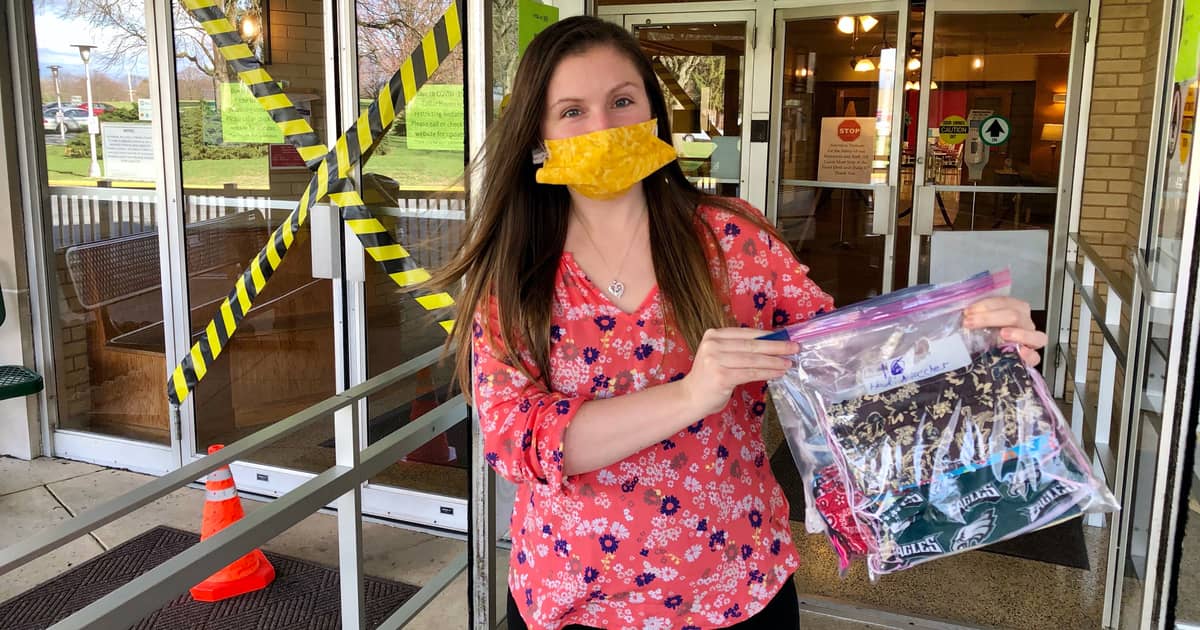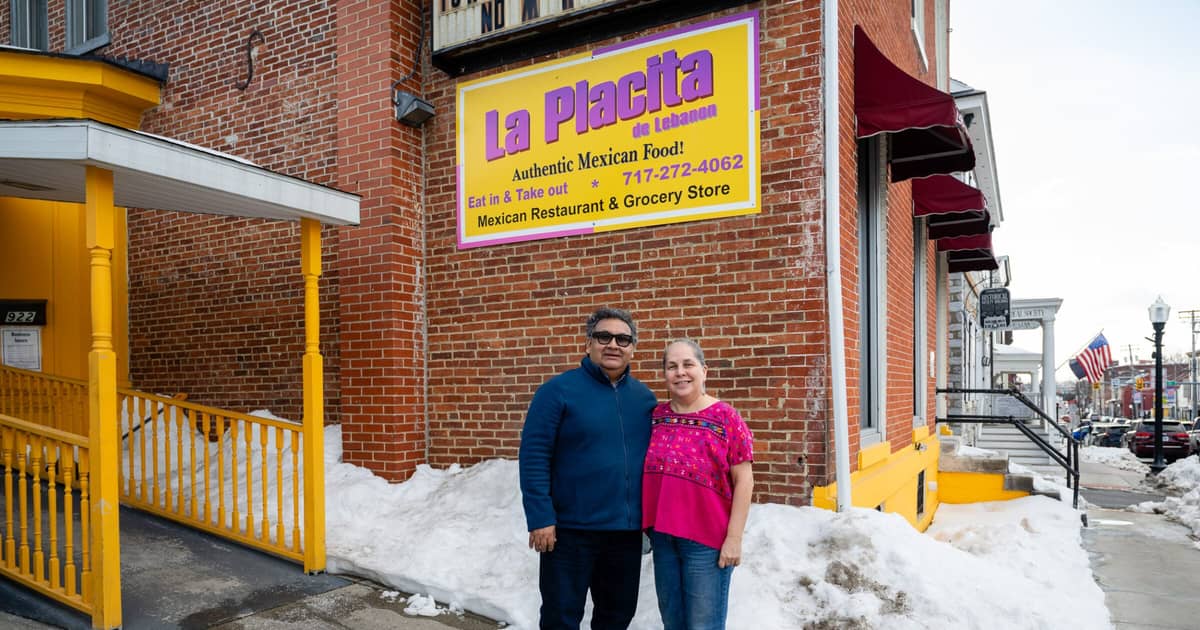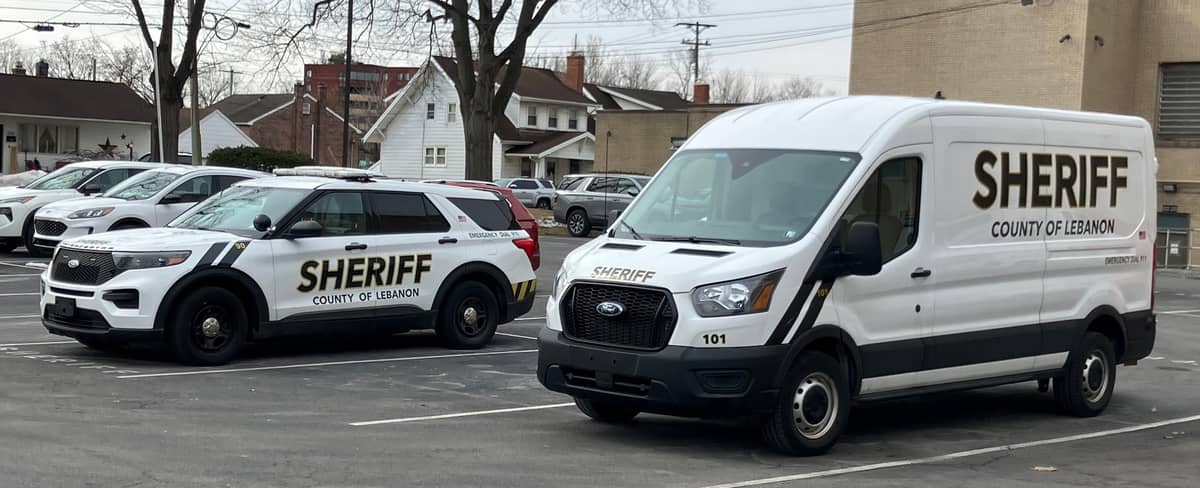The saying “When the going gets tough, the tough get going” definitely rings true today as families and communities face the effects of measures to limit the spread of COVID-19. One of the unfortunate effects of the pandemic is a shortage of N95 surgical masks.
This shortage has area crafters firing up their sewing machines in an effort to sew fabric masks to donate to healthcare workers and emergency responders.
The Centers for Disease Control has suggested that fabric masks could be used as a last resort if necessary, in settings where N95 respirators and surgical masks are not available.
The Pennsylvania Department of Health echoes this view, having told PennLive that, “there are many uses for (homemade masks) in both the hospital and EMS setting, and in the absence of N95 masks, are expected to be suitable alternatives to provide protection during the COVID-19 response.”
Lebanon County Commissioner and real estate owner/property manger Jo Ellen Litz is one of those responding to the call for fabric masks. She said the N95 masks are typically one-time use, so she’s working with a group of 12 female volunteers to create fabric masks. “I feel in times of war women pick up the ball and make things happen, and we are in a war against this virus.,” she said, “I call my group of volunteers my ‘sheroes’; March is Women’s History Month, and these women are making history.”
Litz is also one of those women who’s fired up her sewing machine. She said she first learned to sew in home economics class in school. “My aunt donated a beautiful piece of material that I used to make a shift for home ec class. For the project we had to cut squares of material and sew them together to make the shift,” she recalled, “I didn’t know what I was doing, but when I turned my shift in, the teacher liked it and the way I matched the pattern in the material when I assembled the squares. That was unintentional—I just thought it looked better that way. It was a good experience, and a positive introduction to sewing.”
She’s continued to sew throughout the years. Litz said her “workhorse” Sears Kenmore sewing machine that she had for 50 years quit last year and was replaced by one she bought at Hobby Lobby. “It suited my needs as a casual sewer, but it’s not as heavy duty as the Sears machine. She lets me know if I’ve overworked her, and I’ve learned to do my own repairs,” she said.
The first day of the mask project, she sewed 12 masks, while the second day she completed 24 masks. As of Thursday, March 26, she had made 75 masks. Fabric that’s being used is a cotton blend.
One of the women working with Litz is Sharon Zook, a designer at Snitz Creek Cabinet Shop and president of Lebanon Valley Council on the Arts. “I grew up sewing; I learned how to sew my own clothes when I was 12 years-old. I still sew some of my clothes, but now I also make braided wool rugs,” she said.

Since Snitz Creek Cabinet Shop is closed in response to COVID19, she’s had a bit more time on her hands. She was preparing to do a braided wool rug project, when she saw a post on Facebook regarding the need for fabric masks. The post also contained a pattern. At nearly the same time, Litz reached out to her—the two know one another through community activities.
“I always have fabric around; people who sew always have fabric on-hand. Making fabric masks is a way I can contribute to the community. My art right now is sewing fabric masks—I have pretty fabric,” she said adding that she also recruited her mom, who is a sewer, and her niece is helping by cutting elastic.
Zook said the challenge with making the fabric masks is finding elastic. It connects to the mask and loops around the ears. It has to be ¼-inch thick or smaller. Each mask requires 14-inches of elastic—7-inches for each side. “I had some elastic on-hand, and I knew we had some with the arts supplies at Lebanon Valley Council on the Arts,” she said.

She also put out a request for elastic on Facebook. Her brother, who lives out-of-state, saw it and found some on Amazon and had it shipped to her. Another person contacted her about donating fabric. “It’s a community effort,” Zook said.
As of March 26, she’s had sewn 120 fabric masks. Litz said after seamstresses like Zook complete masks they’re delivered to her home; with social distancing in mind, they’re most often delivered to the front porch. About 172 masks have been delivered to facilities, with about 100 more ready to go in a day or two. Fabric masks have been donated to Cornwall Manor, Cedar Haven and American House Personal Care facility, Speedwell Fire Company, and Rural Security Fire Company as well as personal caregivers, First Aid and Safety Patrol first responders. Litz said masks delivered to the fire companies, personal caregivers and first responders are sanitized prior to delivery. “They often don’t have the ability to sanitize them, while places like Cornwall Manor do,” Litz explained.
When masks are delivered, she takes photos and places them on her Facebook page. “It helps volunteers to know that their efforts are reaching the hands of those who can use them,” Litz said.

Written instructions for creating fabric masks are also posted on her Facebook page. It also contains video instructions, and the video has also been posted on YouTube. She encouraged anyone who wishes to volunteer to do so. “You don’t have to sew—you can cut out fabric or elastic,” she said.
In Mount Gretna, Tina Hubley is also sewing masks. However they’re a bit different. She explained that her daughter works for Compassus, a hospice care, and one of their facilities communicated about the N95 mask shortage. Hubley is sewing cotton masks that fit over N95 masks. “The idea is that the fabric masks can be washed and sanitized then placed over the N95 mask in the hope of extending the life of the N95 mask,” she explained.
She added that while caring for patients Hospice nurses are often in and out of various facilities. “Before paper masks, surgeons wore fabric masks. As the mother of a Hospice worker, I feel the fabric masks people are crafting are better than nothing,” she said.
She’s also been challenged with finding elastic and has reached out to friends and relatives. “It’s great to see everyone come together,” she said.
“Every community can pull together to serve their community,” Litz added.
Read all of LebTown’s COVID-19 coverage here.
Is there a story you think LebTown should report? Let our newsroom know using the form below.
Help us provide journalism Lebanon County needs.
If you are thankful for LebTown, consider joining as a member. Members get an inside look at our publishing schedule each week, plus invites to a members-only Facebook group and happy hours.
Learn more and join now here.
Subscribe to our newsletter for updates each weekday at 3 p.m.
























